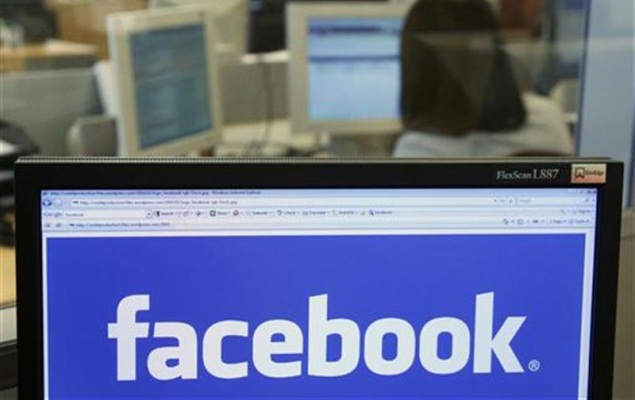- Home
- Social networking
- Social networking News
- US hearing warns FBI, Facebook on facial recognition
US hearing warns FBI, Facebook on facial recognition

Senator Al Franken, who chaired the judiciary subcommittee hearing, said the expansion of such biometric technologies poses concern over privacy and civil liberties.
Franken said that in law enforcement, the use of facial recognition "will catch criminals," but "could come at a high cost to our civil liberties" if police use the systems to target "innocent civilians" or political rallies.
He also expressed concern that facial recognition used by Facebook to "tag" or identify members could be abused by divulging information that its members do not want made public.
Representatives of the FBI and Facebook testified about their safeguards, and civil liberties advocates and others offered views on the new technology.
Franken said facial recognition "exists right here today" and that "our federal privacy laws are unprepared to deal with this technology."
"Law enforcement doesn't need a warrant to use this technology," Franken added.
On the commercial side, he said, "if a store wants to take a picture and generate a 'faceprint,' they can do it, and they might even be able to sell it to third parties."
Jerome Pender, an FBI deputy assistant director, said the federal law enforcement agency has a database of 12.8 million photos and plans to expand a pilot project to nationwide use by 2014.
But Pender said the agency "is committed to ensuring appropriate privacy protections are in place" for the system. That includes only allow law enforcement to search the data and that only "mugshots" of persons arrested would be included.
But Franken said he was unconvinced: "I'm concerned that it could be used to identify people marching around a courthouse or at a political rally."
Maneesha Mithal of the US Federal Trade Commission said meanwhile that the watchdog agency is studying how to regulate commercial use of facial recognition for firms like Facebook, where she said 2.5 billion photos are uploaded to each month.
She said one way facial recognition is being used in the private sector is for targeted advertising. For example, a digital kiosk can display an ad believed to be relevant to a person's age or gender after an image is scanned by face recognition technology.
Facebook's Rob Sherman said the social network "only uses a person's friends" to allow tagging and encrypts that data so third parties cannot use it.
But Franken criticized Facebook for making the use of the technology "opt out" so that it is used unless the member changes his profile to opt out.
"Facebook users upload 300 million photos to the site each day," he said.
"Faceprints can be happening without a person's consent or knowledge... I think this information is so sensitive I think it's the kind thing users should be able to opt themselves into."
One case evoked at the hearing was a Carnegie-Mellon University professor's study in which pictures were taken from students walking across campus and matched to photos on dating websites which were supposed to be anonymous, all using publicly available data.
Privacy groups said laws need to be updated to offer more protection.
"Businesses should never use facial recognitions techniques to obtain the actual identity of consumers without the consumer's actual knowledge and informed consent," said a statement submitted to the hearing by the Electronic Privacy Information Center.
"Consumers today enjoy enormous freedom and personal safety because they are able to interact with so many merchants, who are essentially strangers, without concern that they will be secretly tracked and profiled."
Catch the latest from the Consumer Electronics Show on Gadgets 360, at our CES 2026 hub.
Related Stories
- Samsung Galaxy Unpacked 2025
- ChatGPT
- Redmi Note 14 Pro+
- iPhone 16
- Apple Vision Pro
- Oneplus 12
- OnePlus Nord CE 3 Lite 5G
- iPhone 13
- Xiaomi 14 Pro
- Oppo Find N3
- Tecno Spark Go (2023)
- Realme V30
- Best Phones Under 25000
- Samsung Galaxy S24 Series
- Cryptocurrency
- iQoo 12
- Samsung Galaxy S24 Ultra
- Giottus
- Samsung Galaxy Z Flip 5
- Apple 'Scary Fast'
- Housefull 5
- GoPro Hero 12 Black Review
- Invincible Season 2
- JioGlass
- HD Ready TV
- Laptop Under 50000
- Smartwatch Under 10000
- Latest Mobile Phones
- Compare Phones
- Vivo Y500i
- OnePlus Turbo 6V
- OnePlus Turbo 6
- Itel Zeno 20 Max
- OPPO Reno 15 Pro Mini 5G
- Poco M8 Pro 5G
- Motorola Signature
- Vivo Y50e 5G
- Lenovo Yoga Slim 7x (2025)
- Lenovo Yoga Slim 7a
- Realme Pad 3
- OPPO Pad Air 5
- Xiaomi Watch 5
- Huawei Watch 10th Anniversary Edition
- Acerpure Nitro Z Series 100-inch QLED TV
- Samsung 43 Inch LED Ultra HD (4K) Smart TV (UA43UE81AFULXL)
- Asus ROG Ally
- Nintendo Switch Lite
- Haier 1.6 Ton 5 Star Inverter Split AC (HSU19G-MZAID5BN-INV)
- Haier 1.6 Ton 5 Star Inverter Split AC (HSU19G-MZAIM5BN-INV)
















